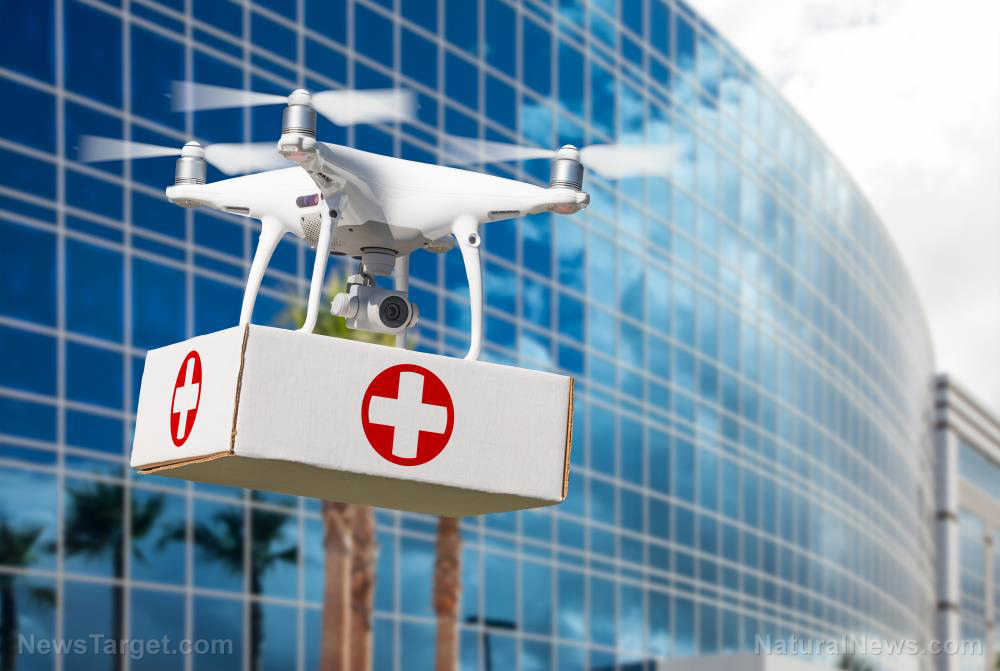Yes, Google has been LISTENING and RECORDING everything you say in your own home through secret NEST microphones
04/14/2019 / By JD Heyes

Google was founded on the corporate motto, “Don’t be evil.” Since then, it seems like Google’s corporate direction has been to be evil in just about every way imaginable, and on a very personal level.
There is nothing more valuable than our privacy and yet, in the tech age, that’s the first thing we lost.
Mind you, as social media got more and more popular, we gave up a lot of our privacy voluntarily. Posting pictures wherever we go; letting all of our followers know where we are, where we’ve been, where we’re going. Telling everyone, including perfect strangers sometimes, our most intimate details and plans, etc.
After the big tech behemoths figured out most users of Snapchat, Facebook, Instagram, Google, YouTube, Twitter, and other platforms were so willing to give up their privacy, they began taking it for granted that they could violate our privacy at their whim, even without our permission.
As Business Insider reports, Google announced earlier this month that Nest Secure, its home security alarm system, was getting updated. Following the upgrade, the company said, users would be able to utilize Google Assistant, a virtual-assistant technology.
But there was an issue users weren’t previously aware of: They didn’t realize that their Nest system had a microphone, to begin with.
Business Insider noted:
The existence of a microphone on the Nest Guard, which is the alarm, keypad, and motion-sensor component in the Nest Secure offering, was never disclosed in any of the product material for the device.
Earlier this month a Google spokesperson told the news site that failure to disclose this little detail was an “error.”
“The on-device microphone was never intended to be a secret and should have been listed in the tech specs,” said the spokesperson, who was not named in the story. “That was an error on our part.” (Related: Google now SPYING on students using classroom technology, while pretending to be “teaching” them.)
The company further notes that “the microphone has never been on and is only activated when users specifically enable the option.” Further, Google officials said that the mic was put into the Next Guard system in the first place because developers were considering what features and upgrades could be added later such as the capability of detecting glass breaking.
Google has a history of stealing personal data, then saying, “Oops…sorry!”
As for whether to believe the company when it says that the microphone is inactive until a user makes it active, that’s dubious at best, especially given the fact that Google never bothered to tell anyone Nest Guard even came with a mic.
As NewsTarget reported in November 2017, Google has a reputation for using its voice-activation software to double as an eavesdropping device:
While the voice assistant’s purpose is to eliminate handicaps in using smartphones, it may also pose as a threat to the security and privacy of everyone. When the feature is turned on, it picks up everything you say to it, and is even triggered by background noise and conversations with other people.
Other “smart” devices are also capable of listening in, as Surveillance.news added:
According to security researchers, a flaw in the LG SmartThinQ application could allow hackers to take control of various household appliances, such as smart dishwashers, refrigerators, microwaves, dryers and vacuums.
As for Nest Guard, Business Insider notes, the revelation about an on-board microphone serves as a reminder of when Google’s tech served as a vacuum for personal data without permission. In 2010, for example, privacy advocates were outraged when Google admitted that its fleet of Street View cars “accidentally” gathered personal data that was being transmitted via a consumer’s unsecured WiFi network, which included a user’s email accounts.
Google bought Nest in 2014 for $3.2 billion and today it’s a standalone company under the umbrella corporation Alphabet.
“The on-device microphone was never intended to be a secret and should have been listed in the tech specs. That was an error on our part,” Google said in a statement.
It sure was.
Read more about massive violations of privacy at PrivacyWatch.news.
Sources include:
Tagged Under: Alphabet, Big Tech, dangerous tech, evil, Glitch, Google, lack of privacy, Nest Guard, personal data, police state, privacy, spying, surveillance, tech giants



















